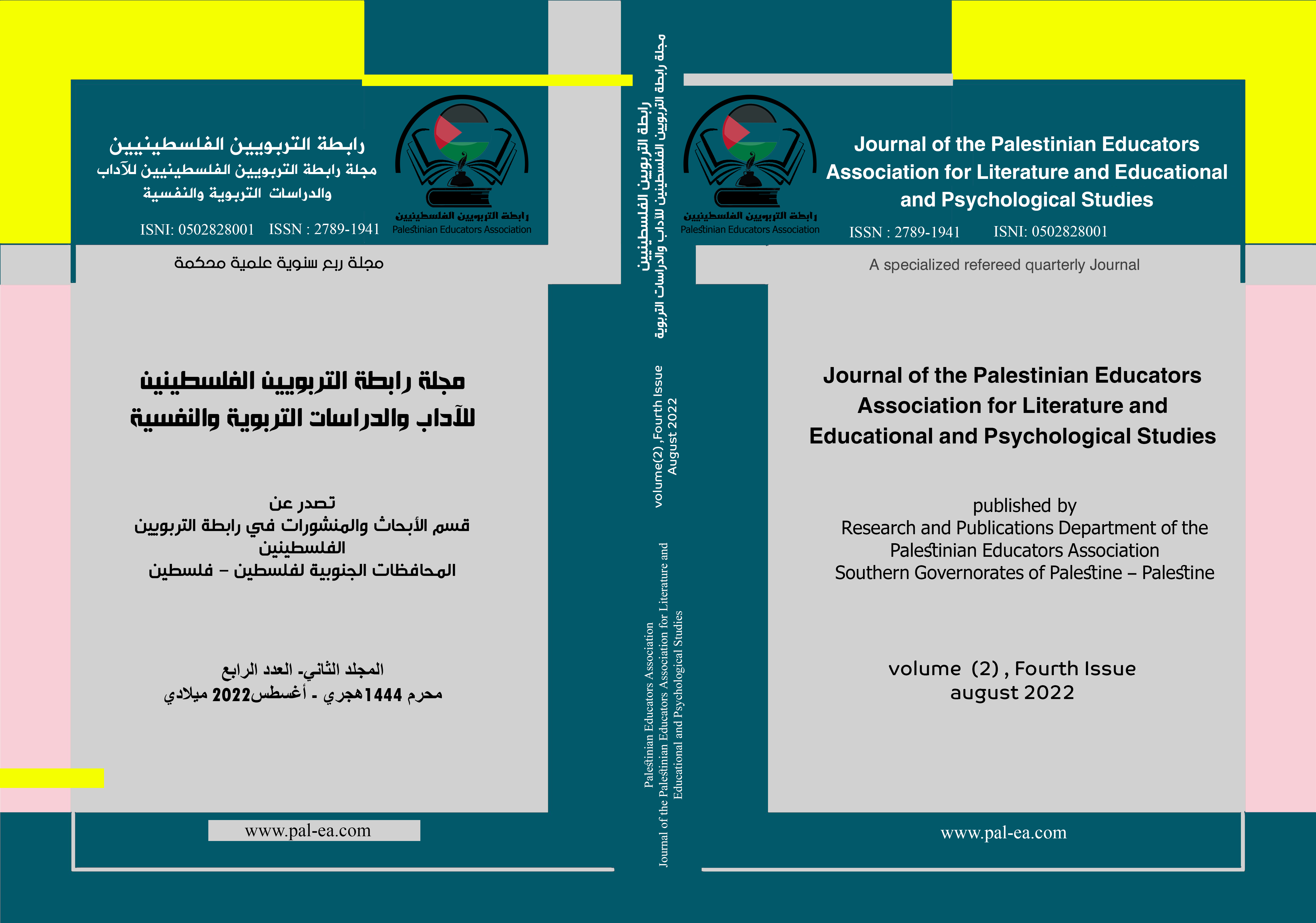A proposed vision to achieve creative leadership among university leaders in the light of contemporary trends
DOI:
https://doi.org/10.69867/PEAJ042Keywords:
creative leadership, university leaders, contemporary trendsAbstract
The study aimed to identify the most important obstacles that prevent the application of the creative leadership style in universities, and to identify the appropriate administrative environment for creative leadership in the light of contemporary trends, as well as to identify the creative leadership skills necessary to build creative university leaders. In light of this, the study presents a proposed vision for activating the creative leadership of university leaders in the light of contemporary trends.
To answer the study questions; the researcher used the developmental analytical method, as she used the descriptive analytical method through the comprehensive description of the phenomenon and the analysis of information related to the subject of the study. And the developmental approach by presenting a proposed vision to activate the creative leadership of university leaders in the light of contemporary trends.
The study found the necessary organizational frameworks for a proposed conception to activate the creative leadership of university leaders, as it is an educational and educational institution that incubates creativity and innovation, which in turn contributes to community development and achieving the desired goals.
Within the limits of the results of the study, the researcher presented a set of recommendations, the most important of which is the adoption of the proposed vision for university leaders who seek to improve their outcomes to meet the changing requirements of the labor market.
Downloads
References
المصادر والمراجع
أولاً: المراجع العربية:
- أبو الناصر، فتحي(2018). مدخل إلى الإدارة التربوية: النظريات، والمهارات، ط2، عمان: دار المسيرة للنشر والتوزيع.
- ابوالعلا، ليلي(2016). مفاهيم ورؤى في الإدارة والقيادة التربوية بين الأصالة والحداثة، عمان: دار يافا العلمية للنشر والتوزيع.
- بطاح، احمد (2006). قضايا معاصرة في الإدارة التربوية، عمان: دار الشروق للنشر والتوزيع.
- عيد، هالة (2016). تصور مقترح لتفعيل القيادة الإبداعية في جامعات المملكة العربية السعودية، مجلة البحث العلمي، 61(9): 387-427.
- الكوني، حسين (2022). درجة ممارسة القيادة الابتكارية في كلية التربية صبر بجامعة لحج وعلاقتها بالاستغراق الوظيفي لأعضاء هيئة التدريس، مجلة مركز جزيرة العرب للبحوث التربوية والإنسانية، 12(2): 168-192.
- ساعد، نهى عواد رشيد (2018). دور القيادة الإبداعية في تحسين مستوى الثقافة التنظيمية في وزارة الصحة الفلسطينية، رسالة ماجستير غير منشورة، أكاديمية الإدارة والسياسة للدراسات العليا.
- صالح، قيس (2018). القيادة الإبداعية وعلاقتها بمتطلبات إدارة المعرفة في جامعة الكوفة من وجهة نظر القيادات الادارية فيها، مجلة القادسية للعلوم الإدارية والاقتصادية، (21): 321-374.
المراجع العربية الإنجليزية
- Abu Al-Nasser, F (2018). An Introduction to Educational Administration: Theories and Skills, (in Arabic), 2nd Edition, Amman: Dar Al Masirah for Publishing and Distribution.
Abu Ela, L (2016). Concepts and visions in educational administration and leadership between originality and modernity, (in Arabic), Amman: Jaffa Scientific House for publication and distribution.
Battah, A (2006). Contemporary Issues in Educational Administration, (in Arabic), Amman: Dar Al-Shorouk for Publishing and Distribution.
- Eid, H (2016). A proposed vision to activate the creative leadership in the universities of the Kingdom of Saudi Arabia, Journal of Scientific Research, 61(9): 387-427.
- Al-Koni, H (2022). The Degree of Practicing Innovative Leadership in the Faculty of Education, Sabr, University of Lahj, and its Relationship to Staff Engagement, (in Arabic), Journal of the Arabian Peninsula Center for Educational and Human Research, 12 (2): 168-192.
- Saed, N (2018). The role of creative leadership in improving the level of organizational culture in the Palestinian Ministry of Health, (in Arabic), unpublished master's thesis, Academy of Management and Politics for Postgraduate Studies.
Saleh, Q (2018). Creative leadership and its relationship to knowledge management requirements at the University of Kufa from the point of view of its administrative leaders, (in Arabic), Al-Qadisiyah Journal of Administrative and Economic Sciences, (21): 321-374.
المراجع الأجنبية:
- DowdIe, Joan (2011) 'The knowIedge and skills required for effective schooI administration as perceived by Elementary school principais within the strata of A Alabama, Dissertation abstracts international, 8(41):1822-1851.
- Garber, Darral (2015) Networking among principals : Astudy of Established practices and relationships "، Paper presented at the Annual Meeting of the national conference of professor of Education Adminstration. (45th ، fargo، ND، U.S Louisiana).
- Toremen, Fatib (2003). Creative school and administration. Educational sciences, theory & practical, 3(1): 248-253.
- Jibrini, Samah Hassan (2018). The Degree of Innovative Leadership Practice Among Educational Leaders and it is Relationship to the Effectiveness of Decision- Making From the Point of View of College Deans and Academic Department Heads in Palestinian Universities, An Unpublis thesis, An-Najah National University Palestine.
Downloads
Published
Issue
Section
License

This work is licensed under a Creative Commons Attribution-NonCommercial-ShareAlike 4.0 International License.
The Journal of the Palestinian Educators Association for Literature, Educational and Psychological Studies
E-issn: 2789-1941
Authors retain Copyright
The Journal of the Palestinian Educators Association for Literature, Educational and Psychological Studies allows Authors retain Copyright and grant the journal right of first publication with the work simultaneously licensed under a Creative Commons Attribution (CC-BY) 4.0 License that allows others to share the work with an acknowledgment of the work’s authorship and initial publication in this journal.
Provided they are the owners of the Copyright to their work, authors are able to enter into separate, additional contractual arrangements for the non-exclusive distribution of the journal’s published version of the work (e.g., post it to an institutional repository, in a journal or publish it in a book), with an acknowledgment of its initial publication in this journal.
Authors are permitted and encouraged to post their work online (e.g., in institutional repositories, disciplinary repositories, or on their website) prior to
and during the submission process.










